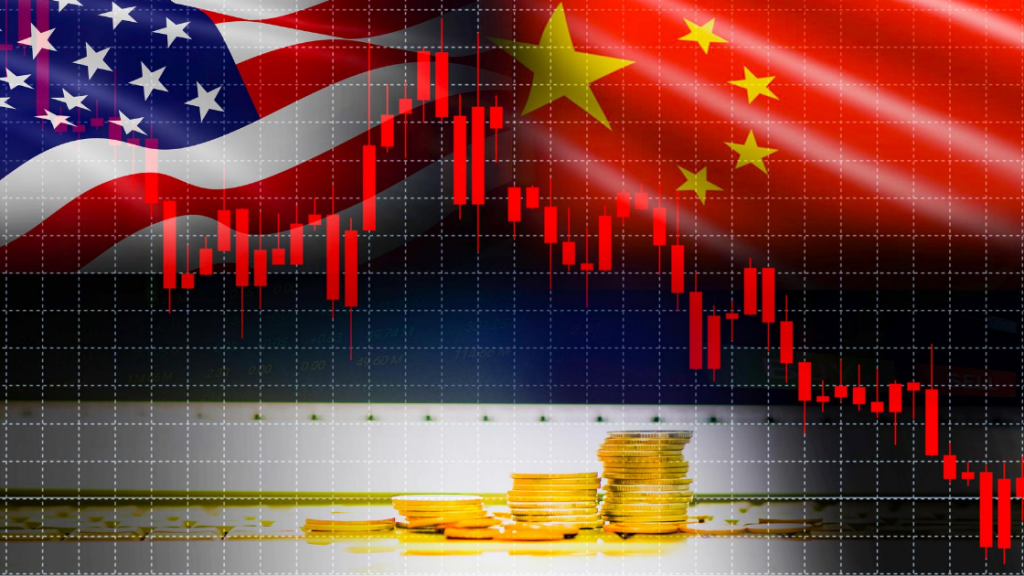CPA’s Take: CPA supports efforts to remove Chinese stocks from the US stock market because they do not let us access their audited financial records. It is ridiculous that it has gone on this long.
The spotlight fell on Chinese investments held by U.S. colleges this week as the White House looks to untangle the intricate financial ties between deep-pocketed money managers and Chinese companies.
[Sunny Oh | August 20, 2020 | Market Watch]
A senior official in the Trump administration warned colleges against investing in Chinese stocks on Tuesday in order to avoid measures that could see such equities listed within the U.S. kicked out of domestic stock exchanges.
“Boards of U.S. university endowments would be prudent to divest from People’s Republic of China firms’ stocks in the likely outcome that enhanced listing standards lead to a wholesale de-listing of PRC firms from U.S. exchanges by the end of next year,” said Keith Krach, undersecretary for economic growth, energy and the environment, in a letter to colleges.
Here’s what the Trump administration’s focus on the financial ties between Washington and Beijing mean for endowment funds.
Why does it matter?
The Trump administration has looked to limit U.S. investments into China as part of the intensifying tensions between Beijing and Washington, which has threatened business, finance and trade relations between the two economic heavyweights.
Earlier this year, the White House pressured the Federal Retirement Thrift Investment Board, which oversees the pension fund for federal government employees, to backtrack on a decision to peg its international equity allocation to a more China-heavy index, a move that could have seen hundreds of millions of funds move into Chinese equities.
This also comes as U.S.-listed Chinese companies have come under increased scrutiny over concerns that the Public Company Accounting Oversight Board and other U.S. regulators do not have access to the books of Chinese firms.
This scrutiny has only grown in recent years as some Chinese companies like Luckin Coffee have been implicated in accounting scandals, raising worries that the difficulty of carrying out due diligence could hurt retail and professional investors.
What’s at risk?
Mutual funds, pension funds and endowments in the U.S. have exposure to Chinese offshore stocks listed in New York such as Alibaba BABA, 3.35% and JD.com Inc JD, 1.56%. These securities represent a large swathe of the exposure of benchmark emerging market indexes to Chinese equities as they are easier to invest in versus their onshore counterparts.
A U.S. Securities and Exchange Commission report said domestic mutual funds had more than $150 billion of investments alone in U.S.-listed Chinese stocks, around 40% of their total exposure to Chinese equities.
NEPC, an investing consultant for school endowment funds, reported that 79% of the endowments and non-profit foundations were invested in Chinese stocks mostly through a broader strategy investing in emerging market equities, according to a survey released last October.
The same survey showed that despite growing concerns around geopolitical tensions, none had plans to cut their investments in the world’s second largest economy.
U.S. colleges have also invested in venture capital firms which carry stakes in artificial-intelligence giants SenseTime and Megvii, which are both included in the U.S.’s entity list for their business dealings with authorities in China’s far-western Xinjiang region where thousands of Muslim Uighur minorities are held in detention.
Fiduciary?
The Trump administration has argued investments in Chinese stocks may represent a failure of the endowment trustees to act in the best interests of their colleges, as the shares of U.S.-listed Chinese companies would take a hit if they were taken off the NASDAQ and other U.S. exchanges.
“People are going to pay attention to what the administration is saying,” said Jennifer Gniady, an attorney at Stradley Ronon Stevens & Young, said in an interview, but noted that many endowment trustees were aware of the risks investing in Chinese companies including the danger of being removed from U.S. exchanges.
But Chinese stocks have held up well this year as its economy and factories have made a sharp recovery after implementing a strict lockdown for several weeks.
Failing to invest in Chinese companies could see pension funds miss out on higher returns, an important factor to consider if they chose to divest or limit their investments in Chinese equities.
The iShares MSCI China exchange-traded fund MCHI, 1.16% has returned close to a positive 15% year-to-date, compared with a slightly negative return for the broader emerging markets index. EEM, 0.39% Meanwhile, the S&P 500SPX, 0.18% is up more than 4% in 2020.
What will colleges do?
Gniady said many endowments would have their hands busy as students return to colleges amid the COVID-19 pandemic, and were unlikely to devote much attention to the issue until later.
But for colleges that have overlooked the issue before, it could spark discussions on what colleges might do with holdings in Chinese companies that pose a national security risk or were in danger of becoming entangled in Washington’s geopolitical competition with Beijing.
“It’s a moral shot-across-the-bow,” Steven Schoenfeld, CEO of MV Index Solutions, told MarketWatch, though he did not anticipate endowments to start off-loading their Chinese holdings en masse.
“At minimum, it will set off a scramble by fiduciaries to closely scrutinize the entire issue, both the pros and cons,” he said.
Read the original article here.













